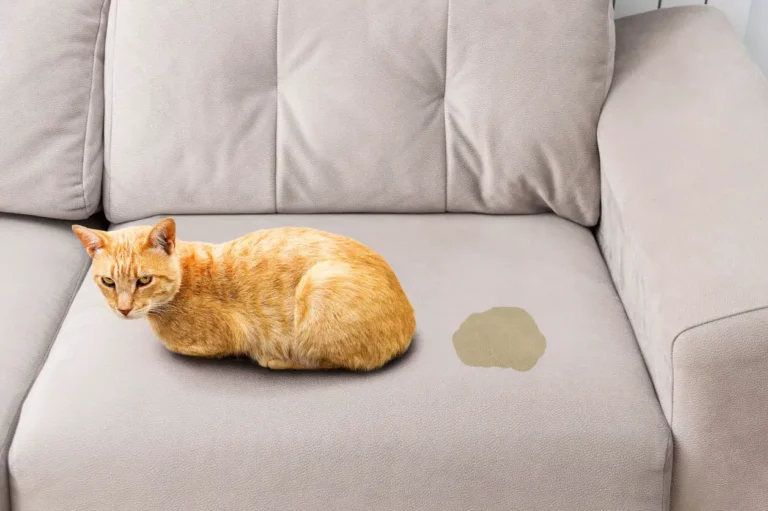Why Do Cats Noses Get Wet When They Purr?
Cats are affectionate and entertaining creatures that purr to show pleasure or contentment. While many people find this soothing sound charming, did you know that cats’ noses can also become wet when they purr? Find out why cats’ noses get wet when they purr and more.
Before we jump into the answer to why cats’ noses get wet when they purr, let’s address some preliminary questions about cats’ noses.
Key takeaways
Cats’ noses get wet when they purr due to increased saliva production.
A wet nose can also be an indicator of a healthy and well-hydrated cat.
Extreme wetness or dryness, however, might signal health issues.
Regular monitoring of a cat’s nose can help detect any health concerns early.
Consult a vet if changes in your cat’s nose wetness are accompanied by other unusual symptoms.
Why are cats’ noses wet?
The answer lies with the rhinarium, or area around the nostrils, which has sweat glands that produce moisture. Additionally, the lower tear ducts help to drain any excess moisture from the nose. This makes sense evolutionarily as cats need a moist and sensitive nose in order to detect scent better.
Are cats’ noses supposed to be wet?
Yes, cats’ noses are supposed to be slightly wet. This helps your cat maintain their sense of smell, which is their most important tool for hunting and navigating the world. A healthy cat’s nose should feel slightly warm and moist, and be free from any bumps or cuts.
It is important to note, however, that if a cat lays out in the sun, this can dry out their nose. A dry nose for this reason is usually temporary and you shouldn’t be too concerned.
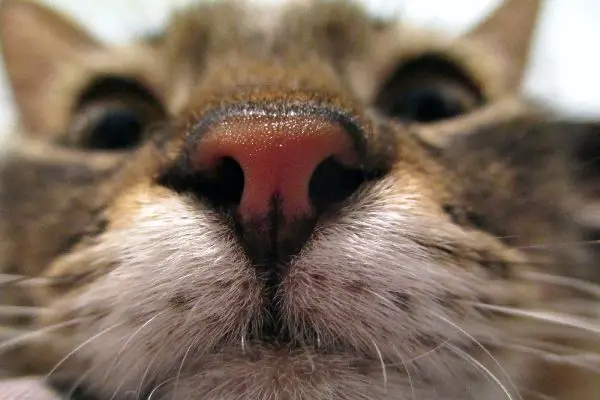
Why Do Cats’ Noses Get Wet When They Purr?
In short, cats’ noses have specialized receptors called “vibrissae” that help the animal detect nearby movement and track the direction of odors. To keep these receptors working at their best, cats need to keep them wet.
When a cat purrs, its nose helps evaporate some of the moisture from its breath—which explains why cats’ noses tend to get wet when they are content and purring.
To better understand why cats’ noses get wet when they purr, we need answer some fundamental questions first.
What Is Pheromone Production?
Pheromones are substances produced by cats that act as a signaling mechanism and can influence the behavior of other cats. When cats purr, they create a low-frequency vibration that triggers the production of pheromones.
Cats use their wet noses to spread these pheromones around, which helps them mark their territory and send messages to other felines regarding friendliness or aggression.
In addition to this, pheromone production can also help cats feel more secure in their environment and reduce stress levels, both of which may contribute to why cats’ noses become wet when they purr.
The Physiology of Purring.
Cats purr by vibrating the muscles near their larynx, which are attached to a part of the brain that is known for releasing endorphins. The vibration is created through specialized cricothyroid muscles and creates a soothing low-frequency hum as air is pushed backward through the larynx.
This helps cats regulate their breathing, reduce pain, heal wounds more quickly, and relieve stress.
Why Do Cats Purr?
Cats purr for many reasons, the most common being to express a feeling of contentment or pleasure. Cats also purr when they’re frightened, stressed, hungry, and even in pain. Purring is thought to be a form of self-soothing that helps cats cope with difficult or challenging situations.
It also aids them in interacting peacefully with others and forming strong bonds with other cats or humans.
How Does Purring Affect Cats Noses?
When cats purr, it signals a response in their tear ducts, which is why there’s moisture on their noses when they purr. This is actually the same phenomenon that causes your eyes to moisten when you cry. So, the next time you hear your cat purring and see them with a wet nose, you’ll know why!
Which Factors Give a Cat’s Nose Its Moisture?
Cats’ wet noses are made possible by a combination of several factors. One of the most important is a cat’s control over its facial muscles, which helps it to manipulate the blood flow and salivary glands beneath its nose.
The moisture also comes from cats licking their whiskers and noses in order to groom themselves and replenish the moisture in their fur.
The Unusual Scent Powers Behind Wet Noses
Another reason cats’ noses are often wet is due to their keen sense of smell. Cats’ noses contain microscopic scent receptors that detect even the faintest smells, and this helps them to interpret and identify their environment.
The moisture helps to capture more of these odors, giving cats an extra advantage when it comes to smelling their way through life.
Why Does My Cat’s Nose Run While Kneading?
Cats’ noses often run when they are kneading, but it isn’t anything to worry about. In fact, this behavior is most likely a sign of contentment and comfort.
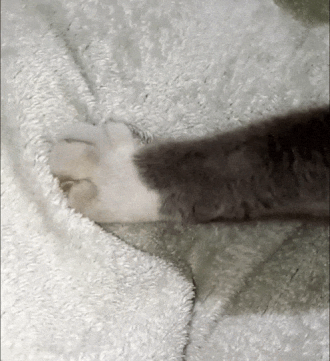
Let me explain why it’s happening and what can be done to stop it.
Understand What Kneading Is
Kneading is a behavior cats exhibit to show they are comfortable and content. Cats may perform this behavior while they’re resting or sleeping in their owners’ lap, as well as when they get excited.
Kneading helps cats mark their territory with the scent glands between their toes and keeps their claws healthy by stretching them out and giving them conditioning exercise.
Identifying the Causes of Kneading-Related Runny Nose
The most likely cause of your cat’s runny nose while kneading is allergies. Cats can suffer from environmental allergies to things like pollen, mold and fragrances that may become even more pronounced when a cat kneads their paws on fabric or fur for an extended period of time.
It is also possible that a cat’s constant kneading action could irritate the nasal passages, causing sneezing and nose running. To determine the exact cause of your cat’s symptom, take them to the vet for an allergy test.
Give Your Cat Proper Nutrition and Hydration to Help Reduce Runny Noses
Proper nutrition and hydration can also help reduce other symptoms associated with a runny nose in cats, including helping to maintain healthy skin and fur. A diet rich in essential fatty acids from sources like fish oil can help to keep the skin moisturized and healthy, which may reduce your cat’s sneezing.
Adding more moisture to their food can also make it easier for cats to drink more water, which helps to prevent dehydration. Providing plenty of fresh water daily is important for overall health too.
Remember That Kneading is Normal Behavior, Don’t Punish Them For It!
Kneading is a natural, instinctual behavior that shouldn’t be discouraged or punished. It may be uncomfortable or strange to witness, but keep in mind that kneading can help cats feel safe and secure.
As long as your cat isn’t making any other messes in the home and isn’t being aggressive towards anyone, it’s best to just let them do their thing.
Get Your Cat Checked Out By a Vet to Rule Out an Infection or Allergy Problem
If you suspect your cat’s nose running while kneading is due to underlying health issues, the best thing to do is take them to the vet and get them checked out. It could be an infection or allergy problem that needs to be addressed and treated with medication or diet changes.
The vet will be able to tell you what’s going on and suggest treatment options, so don’t hesitate to schedule an appointment if you are concerned about your cat’s health.
Final Thoughts on Why Cats’ Noses Get Wet When They Purr
To give a one-word answer, I’d say it’s evolutionary.
Evidently, cats’ noses get wet when they purr for a number of reasons. From all the research conducted for this article, the best way to summarise why would be to say that cats’ noses are often wet because of their natural licking and grooming habits.
During purring, cats tend to lick and groom themselves more vigorously which can lead to a wet nose. Additionally, the vibrations caused by purring can cause a cat’s nose to secrete extra mucus, leading to a dampened surface.
It would appear that a wet nose has a number of benefits from health to their sense of smell for hunting and understanding their surroundings.
Let’s now turn to another interesting question – why cats’ nose run while kneading.

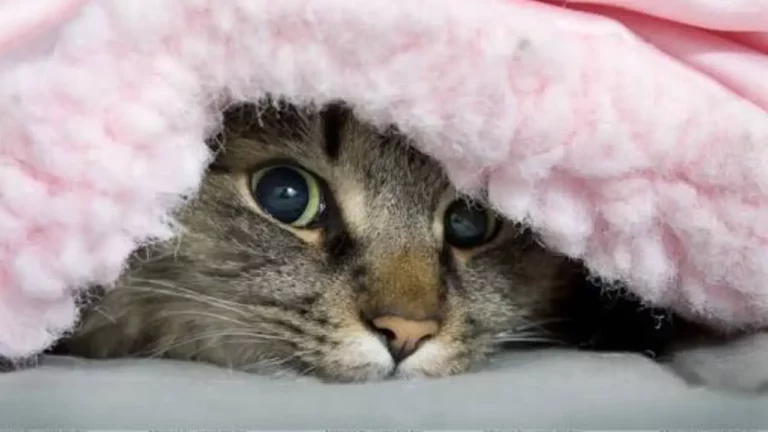
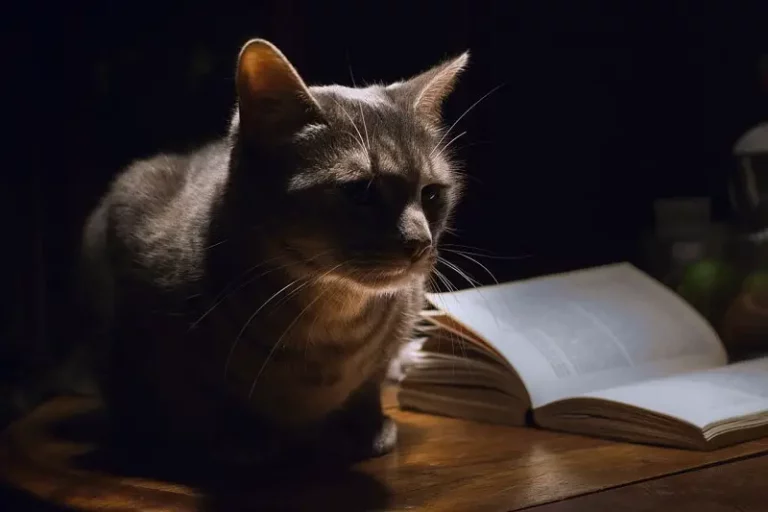
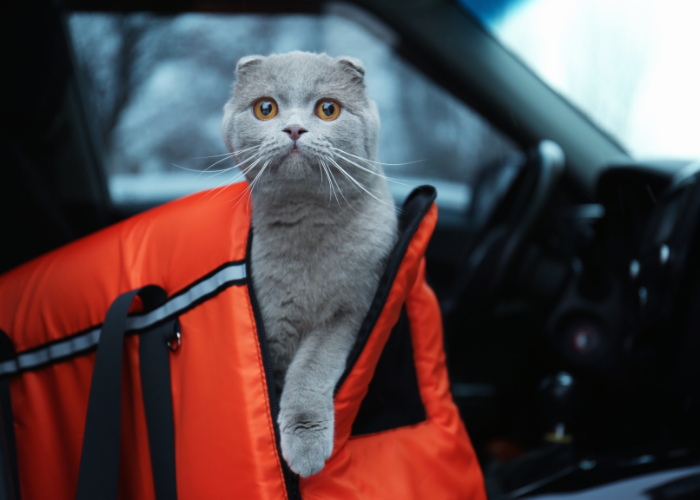
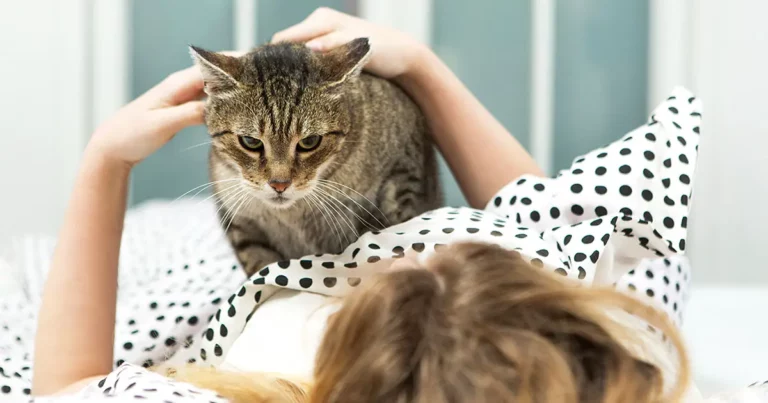
![Why Does My Cat Keep Pooping Outside the Litter Box? [5 Things You Can Do]](https://www.warmlypet.com/wp-content/uploads/2023/01/senior_cat_not_using_litter_box-1024x548-1-768x411.webp)
